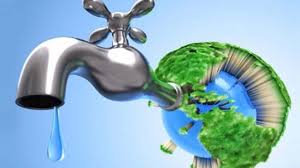Indonesia Offers Concrete Efforts to Handle Water at the 10th WWF
The series of meetings of the 10th World Water Forum (WWF) in 2024 in Nusa Dua, Bali resulted in constructive discussions in order to strengthen cooperation in handling various world water problems. The participating countries in the World Water Forum expressed a global commitment to contribute to shaping the future of water sustainability. Indonesia is encouraging concrete initiatives at the 10th World Water Forum.
For the first time since the World Water Forum was held, world water issues were discussed at the head of state level or High Level Meeting. President Joko Widodo emphasized that the 10th World Water Forum was very strategic in revitalizing real action and joint commitment in realizing integrated water resources management.
Three things that Indonesia has consistently pushed for include, firstly, increasing the principles of solidarity and inclusiveness to achieve joint solutions, especially for small island countries and those experiencing water scarcity. Indonesia also encourages the empowerment of hydro-diplomacy for concrete and innovative cooperation, avoiding competition in managing cross-border water resources.
For Indonesia, strengthening political leadership is the key to the success of various collaborations towards sustainable water security.
President Joko Widodo also revealed four new initiatives promoted by Indonesia at the 10th World Water Forum, namely the establishment of World Lake Day, the establishment of a Center of Excellence in the Asia Pacific, sustainable water management in small island countries and the promotion of water projects.
In the speech he delivered, President Jokowi said that water is not just a natural product, but is a product of collaboration that unites us so that joint efforts are needed to protect it. So the conditions of too much water or too little water can both be a problem for the world
Previously, the Director General of Information and Public Communication at the Ministry of Communication and Informatics, Usman Kansong, said that Indonesia’s role in WWF 2024 was not only as host, but also as providing a concrete example in water management. Through this forum, Indonesia demonstrated the success of the construction of 56 dams carried out during President Jokowi’s administration at WWF in Bali. Apart from that, local wisdom in treating water, such as the subak system, was also part of the delegates’ experience. The delegation was invited to visit rice fields in Jatiluwih Village, Tabanan, Bali to see the typical agricultural irrigation system on the Island of the Gods.
He hopes that WWF 2024 will not only be a forum for discussion, but will also produce positive changes in the treatment of water throughout the world. He also emphasized the importance of involving various parties, including government, non-governmental organizations (NGOs), academics, and community groups such as farmers and indigenous communities so that enthusiasm for treating water in a better direction can become a movement at the global level.
As a country facing major challenges in the issues of crisis and security in water, food, energy, health, and the serious impact of climate change, Indonesia as the host ensures that the 10th WWF not only produces productive discussions, but also political decisions that can be implemented and have long-term impacts. The success of this forum is a measure of Indonesia’s ability to contribute and adapt to a dynamic and challenging global order.
Previously, Expert Staff to the Minister of Public Works and Public Housing (PUPR) for Water Resources, Firdaus Ali, said that the 10th WWF was a monumental meeting to transform all policies, so that together we could face the future, making water a source of life, growth and peace. Through WWF 2024 Indonesia emphasizes the important role of water in the lives of all living creatures. Considering various global water challenges such as scarcity, pollution and natural disasters due to climate change, Indonesia wants to make water a source of prosperity and peace, not a source of conflict.
According to Firdaus Ali, water issues have become the main issue in various international events and declarations, including sustainable development goals (SDGs). One of the goals in the SDGs adopted by the UN in 2015 is to ensure the availability and sustainable management of clean water and sanitation for all. This goal must be achieved by 2030.
On a different occasion, Expert Staff to the Minister of PUPR for Technology, Industry and the Environment, Endra S. Atmawidjaja, said that Indonesia had a big influence on the direction of policy in the water sector. He explained that since the beginning, at various world forums, Indonesia has consistently pushed for water issues to be discussed at the highest level. There must be strong encouragement from policy makers.
In an ever-changing global landscape, climate change and related water resource challenges will continue to be critical issues requiring a global response. As the host of the 10th WWF, Indonesia has a unique opportunity to lead this change and show that Indonesia is not only ready to face these challenges, but is also proactive in finding solutions that will bring shared prosperity.
